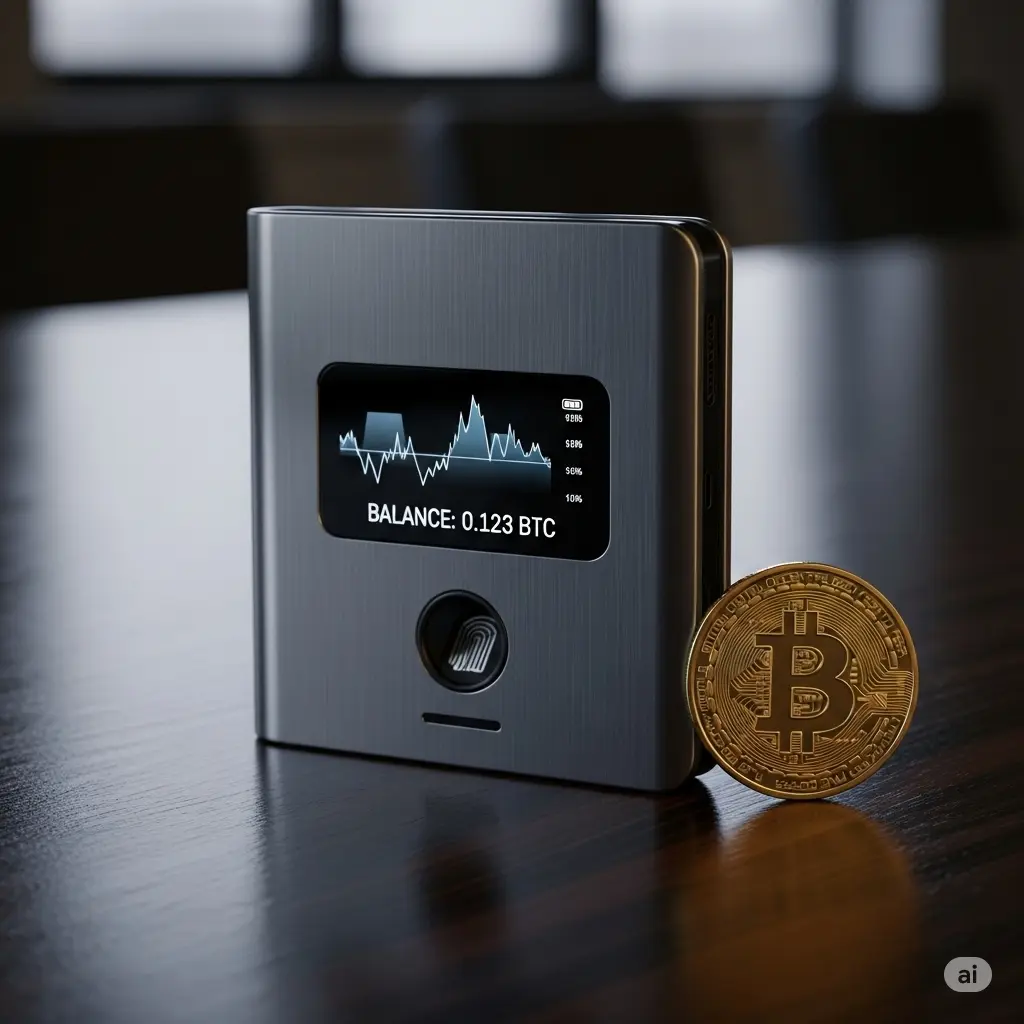Secure Crypto Wallets That Shield You from Online Threats
In the rapidly evolving world of digital currencies, one thing remains crystal clear: secure crypto wallets are your first and last line of defense against online threats. Whether you’re an active trader or a long-term holder, understanding how to protect your digital assets is crucial. This comprehensive guide dives deep into everything you need to know about secure crypto wallets, focusing on practical tips, types of wallets, and how to maintain top-notch crypto wallet security.
What Is a Secure Crypto Wallet? A Direct Answer
A secure crypto wallet is a digital tool designed to store your private keys safely, allowing you to send, receive, and manage your cryptocurrency without risking theft or loss. These wallets come in different forms, such as hardware wallets, mobile wallets, cold wallets, and hot wallets, each offering unique levels of protection against cyber-attacks.
In simple terms, the security of your crypto wallet depends on how well it shields your private keys and seed phrase from hackers and malware.

Why Secure Crypto Wallets Matter More Than Ever
With the rise of online scams, phishing, and hacking attempts, choosing the best crypto wallet 2025 is no longer optional—it’s essential. Every year, billions of dollars’ worth of cryptocurrencies are stolen because users neglect wallet safety. A robust, secure crypto wallet not only protects your assets but also offers peace of mind in an unpredictable digital space.
If you’re reading Global Crypto Sports, a news-related website keeping you updated on market trends, you already know how volatile and risky the crypto space can be. Proper wallet security is your ticket to navigating this volatile environment safely.
Types of Secure Crypto Wallets
Understanding wallet types is the first step toward picking the right one for your needs. Here’s an overview of the main categories:
1. Hardware Wallets (Cold Wallets)
Hardware wallets are physical devices that store your private keys offline. Because they are disconnected from the internet, they are immune to most online threats like hacking and malware.
- Examples: Ledger Nano X, Trezor Model T
- Advantages: Highest level of security, resistant to phishing
- Disadvantages: Costly, less convenient for frequent trading
2. Mobile Wallets (Hot Wallets)
Mobile wallets are apps installed on smartphones. They connect to the internet, making transactions faster but more vulnerable to attacks.
- Examples: Trust Wallet, Coinbase Wallet
- Advantages: Convenient, user-friendly, good for daily use
- Disadvantages: Risk of hacking if the phone is compromised
3. Desktop Wallets
Installed on a personal computer, desktop wallets provide moderate security but can be vulnerable to viruses or keyloggers.
- Examples: Exodus, Electrum
- Advantages: Control over private keys, accessible
- Disadvantages: Susceptible to malware and phishing
4. Web Wallets
Web wallets are accessed via browsers and are usually provided by exchanges or third parties.
- Examples: MetaMask, Binance Wallet
- Advantages: Easy access anywhere, fast setup
- Disadvantages: Custodial risks, vulnerable to phishing attacks
5. Decentralized Wallets
These wallets give you full control over your assets without relying on a central authority.
- Advantages: Enhanced privacy, no single point of failure
- Disadvantages: User responsibility is high, and backup is essential
Key Features of a Secure Crypto Wallet
When choosing the best crypto wallet 2025, look for these features:
A. Seed Phrase Backup
Your seed phrase is the master key to your wallet. Always back it up securely offline and never share it with anyone. This phrase allows wallet recovery if your device is lost or stolen.
B. Two-Factor Authentication (2FA)
Adding 2FA adds an extra layer of security by requiring a second verification step, like a code sent to your phone.
C. Multi-Signature Support
Multi-signature wallets require more than one key to authorize transactions, reducing the risk of unauthorized access.
D. Encryption and Password Protection
Ensure the wallet uses strong encryption standards and password protection to prevent unauthorized entry.
E. Open Source Code
Open-source wallets allow community audits, improving security through transparency.

How to Maintain Crypto Wallet Security: Practical Tips
To truly shield your wallet from online threats, follow these expert tips:
1. Always Use a Hardware Wallet for Large Holdings
Store your bulk of cryptocurrency in a cold wallet. These wallets keep private keys offline, making hacking virtually impossible.
2. Keep Your Seed Phrase Offline and Private
Never store your seed phrase digitally or online. Write it down on paper or engrave it on metal and keep it in a secure place.
3. Use Strong Passwords and 2FA
Enable two-factor authentication and use strong, unique passwords to protect your wallet app or exchange account.
4. Regularly Update Your Wallet Software
Developers often patch security flaws. Keeping your wallet software up to date is critical.
5. Beware of Phishing Attempts
Avoid clicking suspicious links or sharing private keys. Always verify URLs and download wallets from official sources.
6. Create Wallet Backups
Regularly back up your wallet data to prevent permanent loss. Store backups offline in secure locations.
Comparing Cold Wallets vs. Hot Wallets: Which Is Safer?
The debate between cold wallets and hot wallets boils down to security versus convenience.
| Feature | Cold Wallet | Hot Wallet |
|---|---|---|
| Connection | Offline | Online |
| Security | High (immune to online hacks) | Moderate (vulnerable to hacks) |
| Convenience | Low (slower transactions) | High (quick transactions) |
| Use Case | Long-term storage | Daily trading & spending |
| Examples | Ledger, Trezor | Trust Wallet, MetaMask |
For maximum security, experts recommend combining both: keep your main funds in a hardware wallet and use a mobile wallet for everyday transactions.
Trusted Brands in Crypto Wallet Security
When choosing a wallet, rely on brands with proven track records:
- Ledger: Known for its hardware wallet security.
- Trezor: Pioneer in cold wallet technology.
- Trust Wallet: Popular mobile wallet with decentralized features.
- MetaMask: Leading decentralized wallet for Ethereum-based tokens.
- Exodus: User-friendly desktop wallet with multi-asset support.
These brands also receive regular security audits and updates, keeping your assets safer.
The Role of Decentralized Wallets in Crypto Security
Decentralized wallets are becoming increasingly popular because they give users full control without a central authority. These wallets store your keys locally on your device and use blockchain tech for secure transactions.
- They prevent custody risks associated with exchanges.
- However, if you lose your seed phrase, recovery is impossible.
- Therefore, wallet backup is vital.
FAQs About Secure Crypto Wallets
Q1: What’s the difference between a seed phrase and a password?
A seed phrase is a list of words generated by your wallet to restore access, while a password protects your wallet from unauthorized access.
Q2: Is a mobile wallet safe for large amounts?
Mobile wallets are convenient but not recommended for large holdings due to their exposure to online threats.
Q3: Can hardware wallets be hacked?
Hardware wallets are highly secure, but physical theft or malware on the connected device can pose risks.
Q4: How often should I update my wallet software?
Always update your wallet software as soon as a new version is released to fix vulnerabilities.
Common Myths About Crypto Wallet Security
Myth 1: “Crypto wallets are 100% hacker-proof.”
No wallet is entirely invulnerable. User practices like seed phrase exposure or poor password hygiene often cause breaches.
Myth 2: “Storing crypto on exchanges is safe.”
Exchanges can be hacked or freeze withdrawals. Transferring funds to your secure crypto wallet is safer.
Myth 3: “I don’t need to back up my wallet.”
Without a backup, losing your device means losing access to your crypto forever.
Building Trust with Your Crypto Wallet Choice
At Global Crypto Sports, we emphasize transparency and reliability. Choosing a secure crypto wallet from trusted brands is vital for protecting your digital assets. Always research before downloading or purchasing, and never compromise on security features.
Final Thoughts: Your Roadmap to Crypto Safety in 2025
By now, you understand why a secure crypto wallet is a must-have in today’s digital age. Whether you prefer a hardware wallet or a mobile wallet, prioritize safety by safeguarding your seed phrase, enabling 2FA, and regularly backing up your wallet.
Remember, the best crypto wallet 2025 is the one you feel confident using every day. Secure your assets today to enjoy peace of mind tomorrow.
If you want the latest crypto news and security tips, keep following Global Crypto Sports—your trusted guide in the crypto world!
